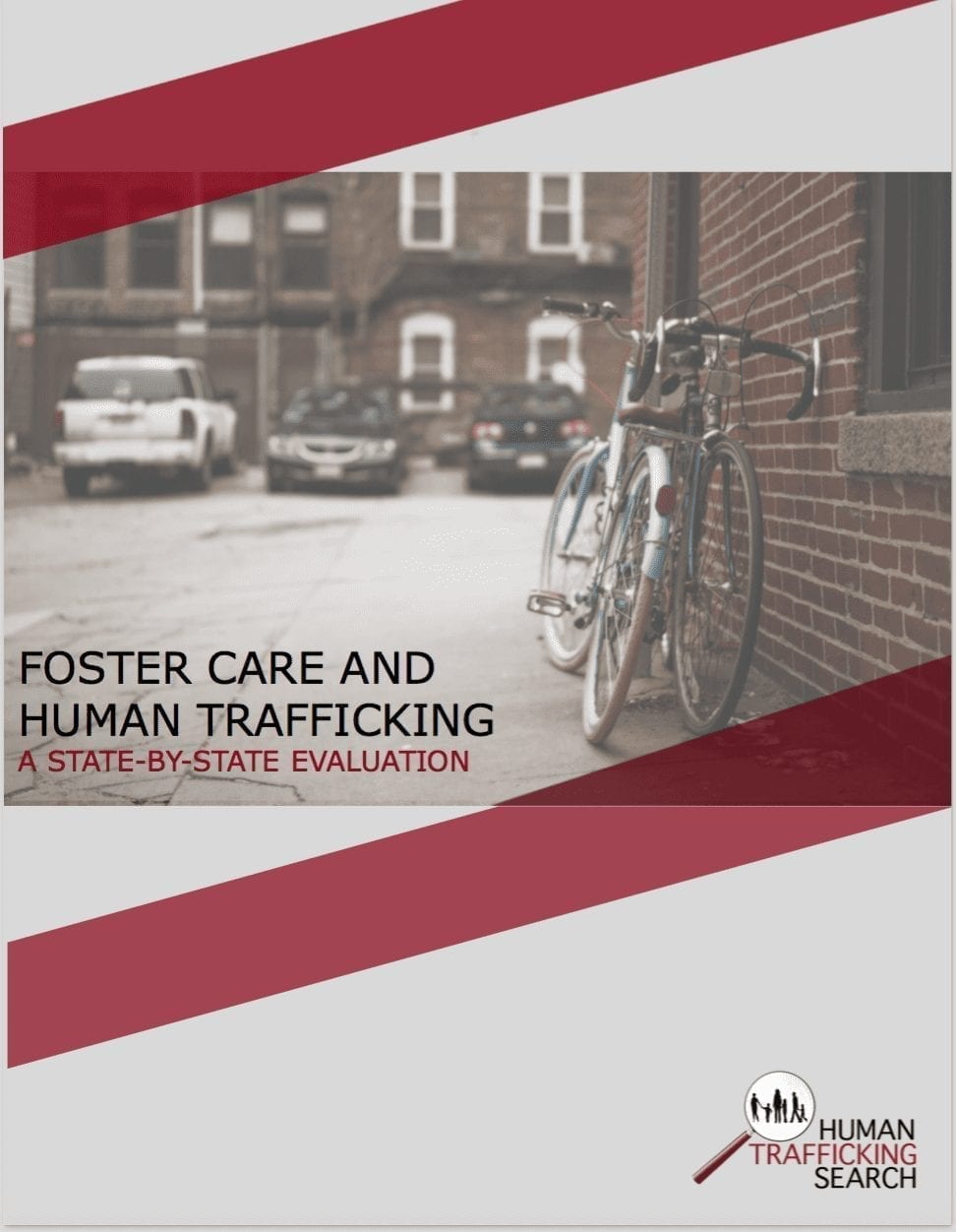
Foster Care and Human Trafficking: A Blog Series
Human Trafficking Search recently published a state-by-state report card examining the link between foster care and human trafficking across states and grading states on their foster care and anti-trafficking provisions. This blog is the first of a blog series to summarize the publication.
Our report card is based on seven main criteria to evaluate states on their efforts to protect foster youth from trafficking. Each criterion was chosen for its relevance to either child welfare or human trafficking. All are necessary to build a robust system that protects foster youth from being trafficked.
Aging Out Policies
Each year, over 26,000 foster children turn 18 and age out of the foster care system. These young adults face obstacles such as homelessness, unemployment, difficulty accessing postsecondary education, and financial instability as they transition to adulthood. As minors age out of the child welfare system, their risk of homelessness increases, which is one of the largest risk factors for trafficking. Given these statistics, it is imperative to provide more support for older youth in foster care during their transition to adulthood. States provide varying levels of support for youth again out of the foster care system.
Kinship Care
Kinship care is important in the discussion of foster care and human trafficking because it greatly increases the success of a foster care placement. Kinship care allows a child to remain with people they are familiar with and often in a place that they are familiar with; this decreases the likelihood that they will run away or end up on the streets, where they are at risk for trafficking. Children placed in kinship care are less likely to be moved from placement to placement. They are less likely to have behavioral issues, and less likely to be maltreated. Some states provide additional benefits to kinship caregivers, while others may not even mention kinship care.
State Reporting Laws
On September 29, 2014, President Obama passed the Preventing Sex Trafficking and Strengthening Families Act. Part of the act focuses on children in the foster care system, requiring state agencies to report missing foster children and put in place procedures to address children in care who have been or are at risk of being trafficked. Despite this federal legislation, not every state has implemented the necessary laws and policies to protect children in foster care from trafficking by reporting when they go missing or run away.
Relevant Foster Care Provisions
This category consists of three main areas of state-based foster care legislation that have a direct effect on successful foster home placements: background checks, grounds for foster parent disqualification, and foster parent training. These considerations are vitally important because violence and abuse in foster homes has a direct link to runaways and youth homelessness, which greatly increases the risk for trafficking. A trained foster parent will be better equipped to create a safe and loving home for their foster child, which will help to keep them out of the reach of traffickers.
LGBT Youth Protections
LGBTQ youth are over-represented in the foster care system. Additionally, LGBTQ youth also face high rates of homelessness, either due to running away or being kicked out of their home. Once on the street, these youths are up to 7 times more likely than non-LGBTQ homeless youth to engage in survival sex. Given these risks, traffickers see LGBTQ youth as potential targets for abuse.
Task Forces and Law Enforcement Training
With growing numbers of children being placed in foster care, many state systems are over worked and underfunded. Task forces are crucial for evaluating issues within the system such as mental health services, education, and child abuse. In addition, Properly trained law enforcement is key to combatting trafficking at the state level. Task forces can help to establish this training, and play a vital role in coordinating state anti-trafficking efforts. Coordinated strategies result in more investigations and prosecutions, as well as better assistance for survivors and greater awareness amongst the general public.
Relevant Anti-Trafficking Provisions
Because a criminal record is a barrier to many opportunities such as education and employment, it is necessary for states to enact laws that protect and assist children who have been exploited for labor and sex. For example, Safe Harbor Legislation is especially important because minors who are sexually exploited are then reclassified as victims rather than criminals. In addition, diversion service provision is essential to address victims’ trauma and end the victimization of trafficking so they can live healthy and stable lives. State anti-trafficking provisions vary in the way youth are classified (as victims or criminals) and the services provided to victims and survivors of human trafficking.
Stay tuned next week for our blog revealing the best and worst states based on our research. If you are interested in reading the full publication, please click here.
